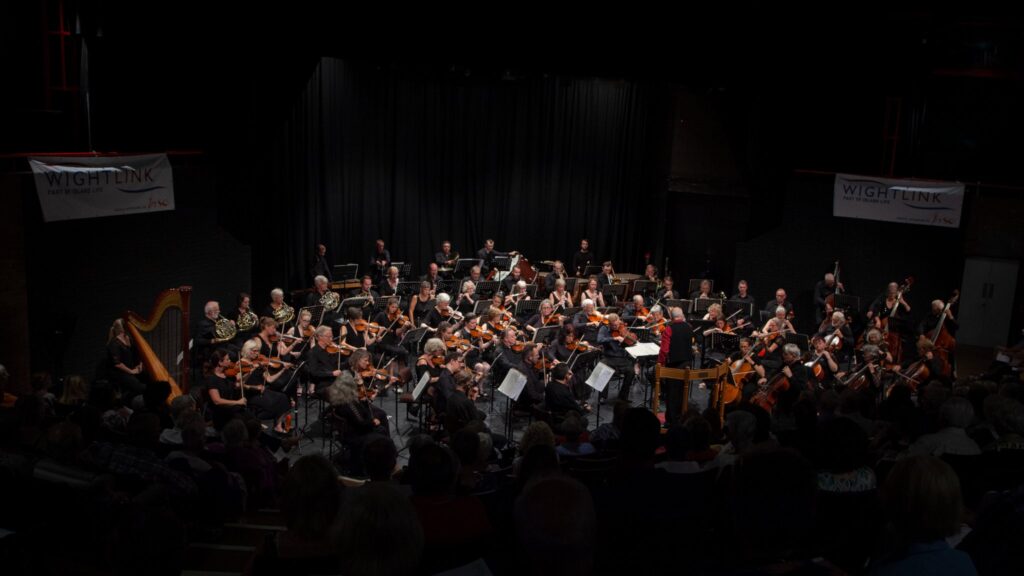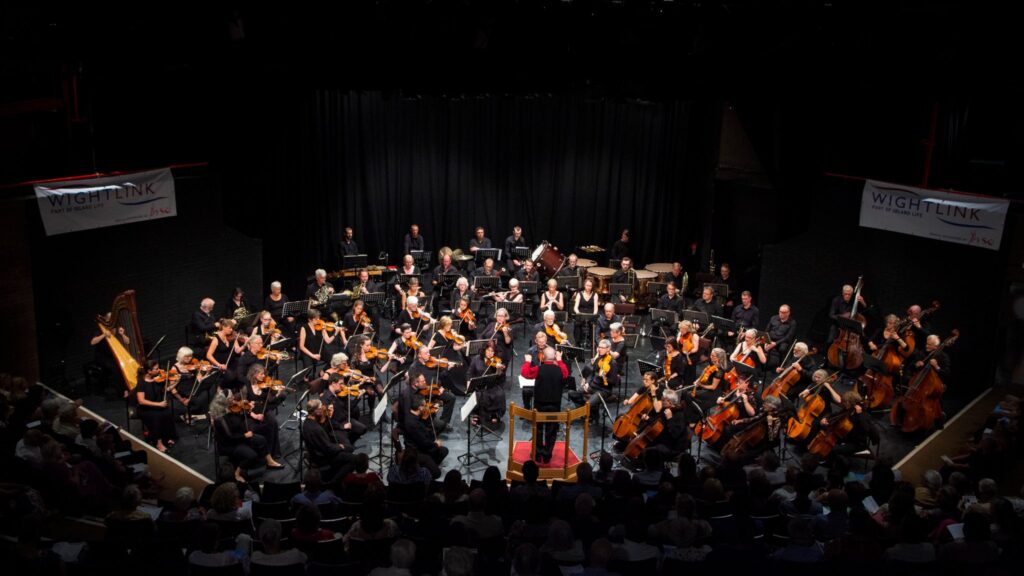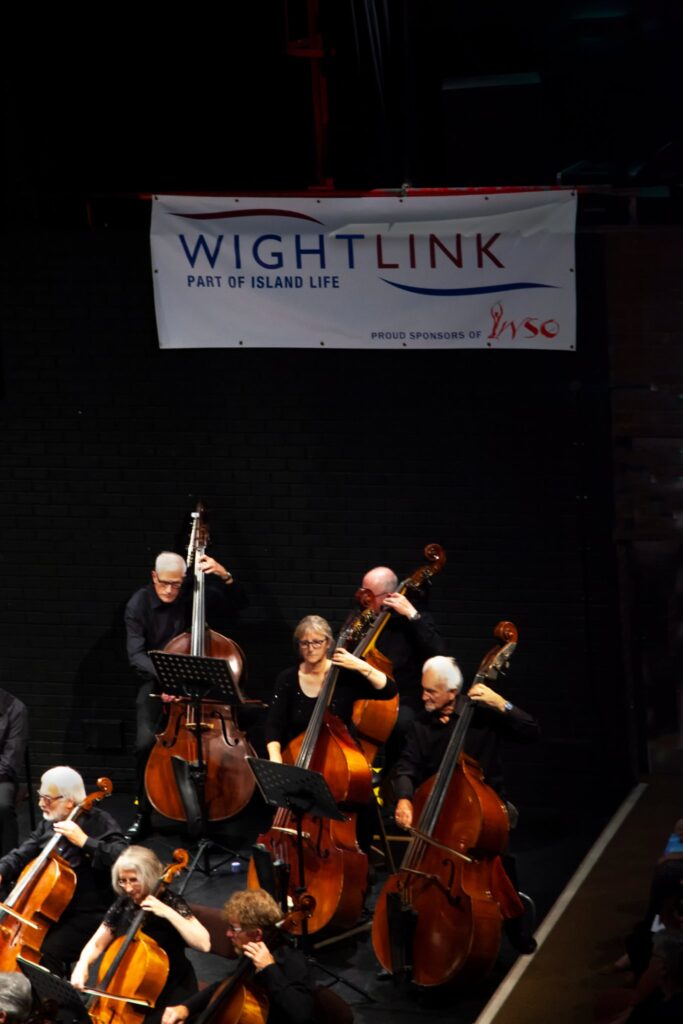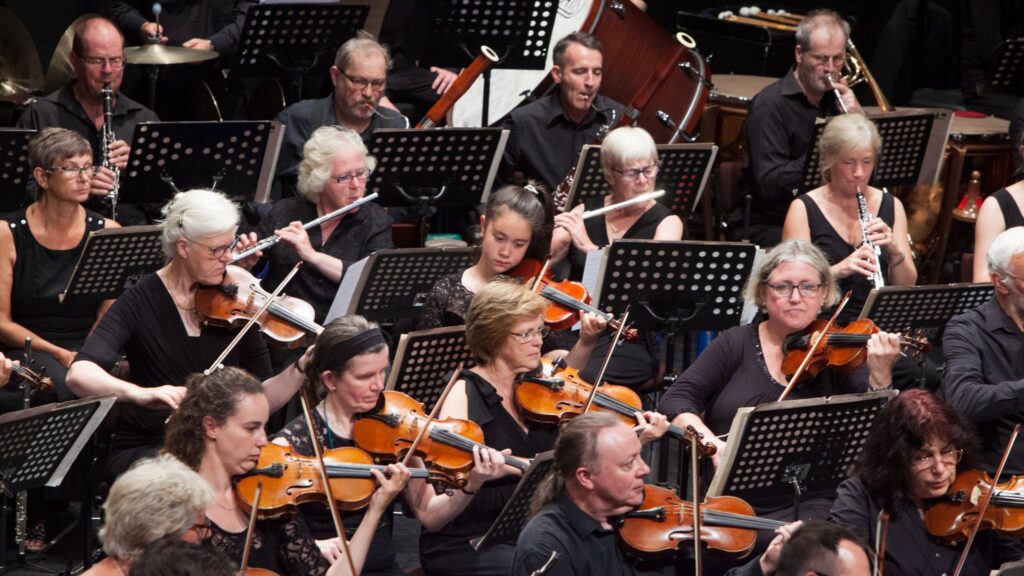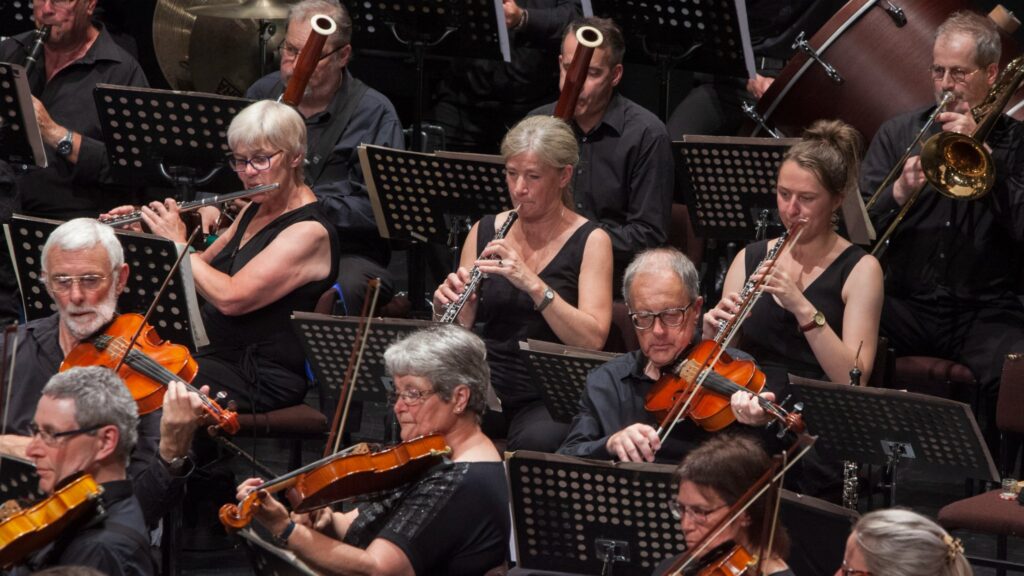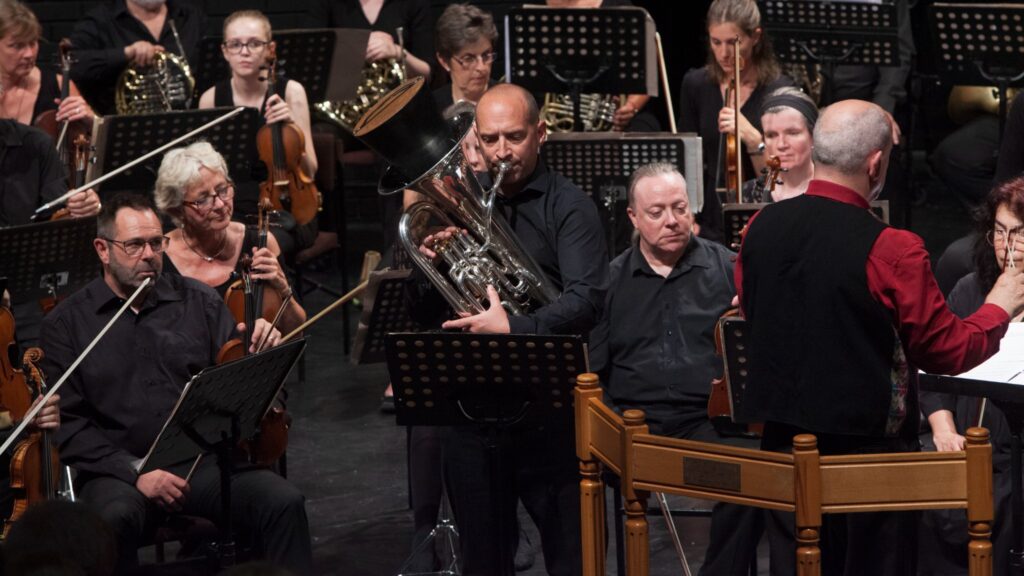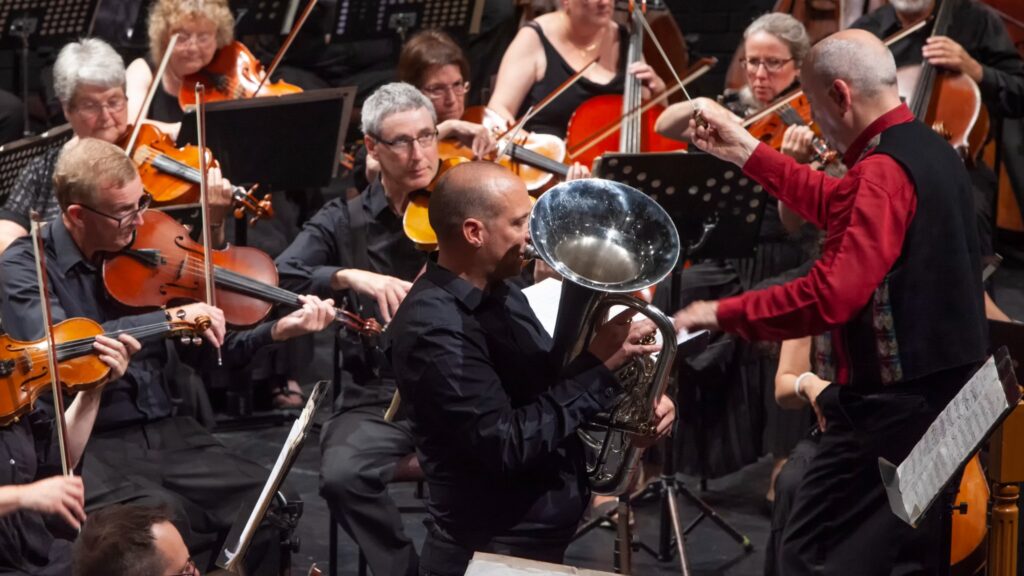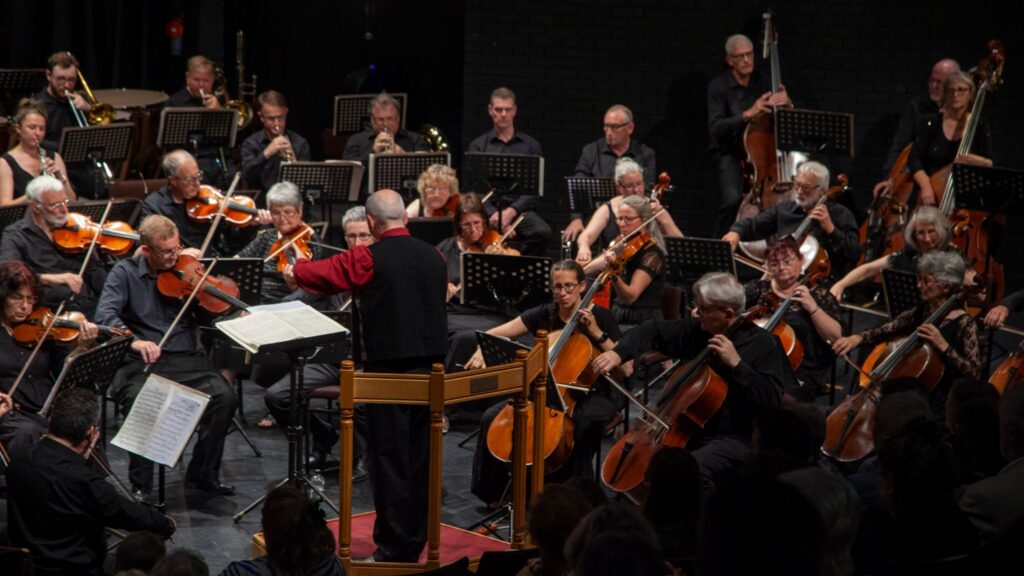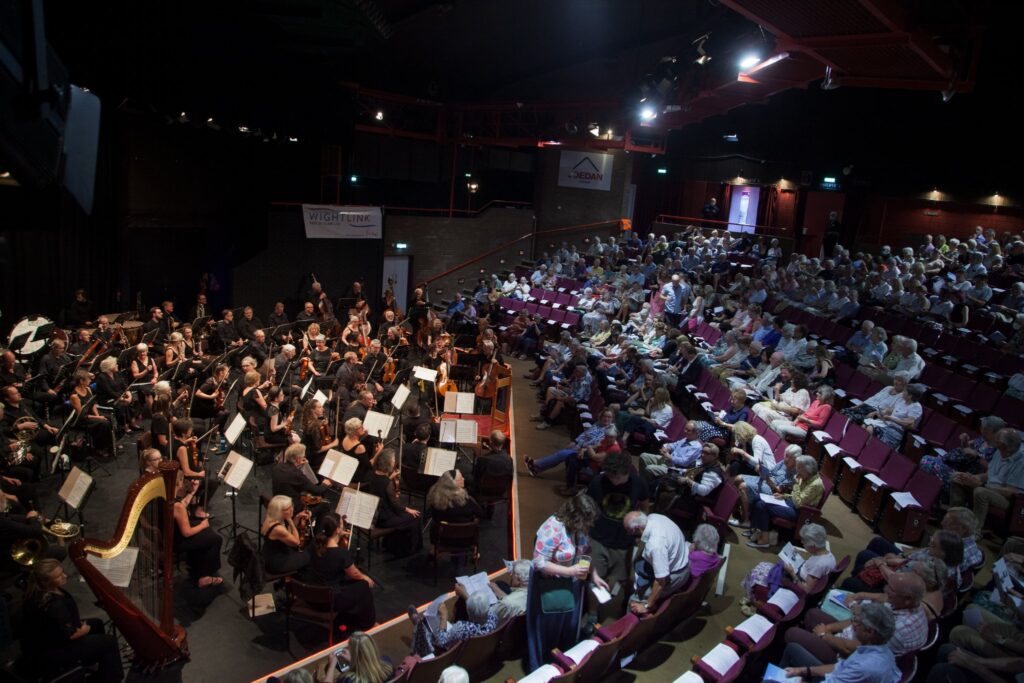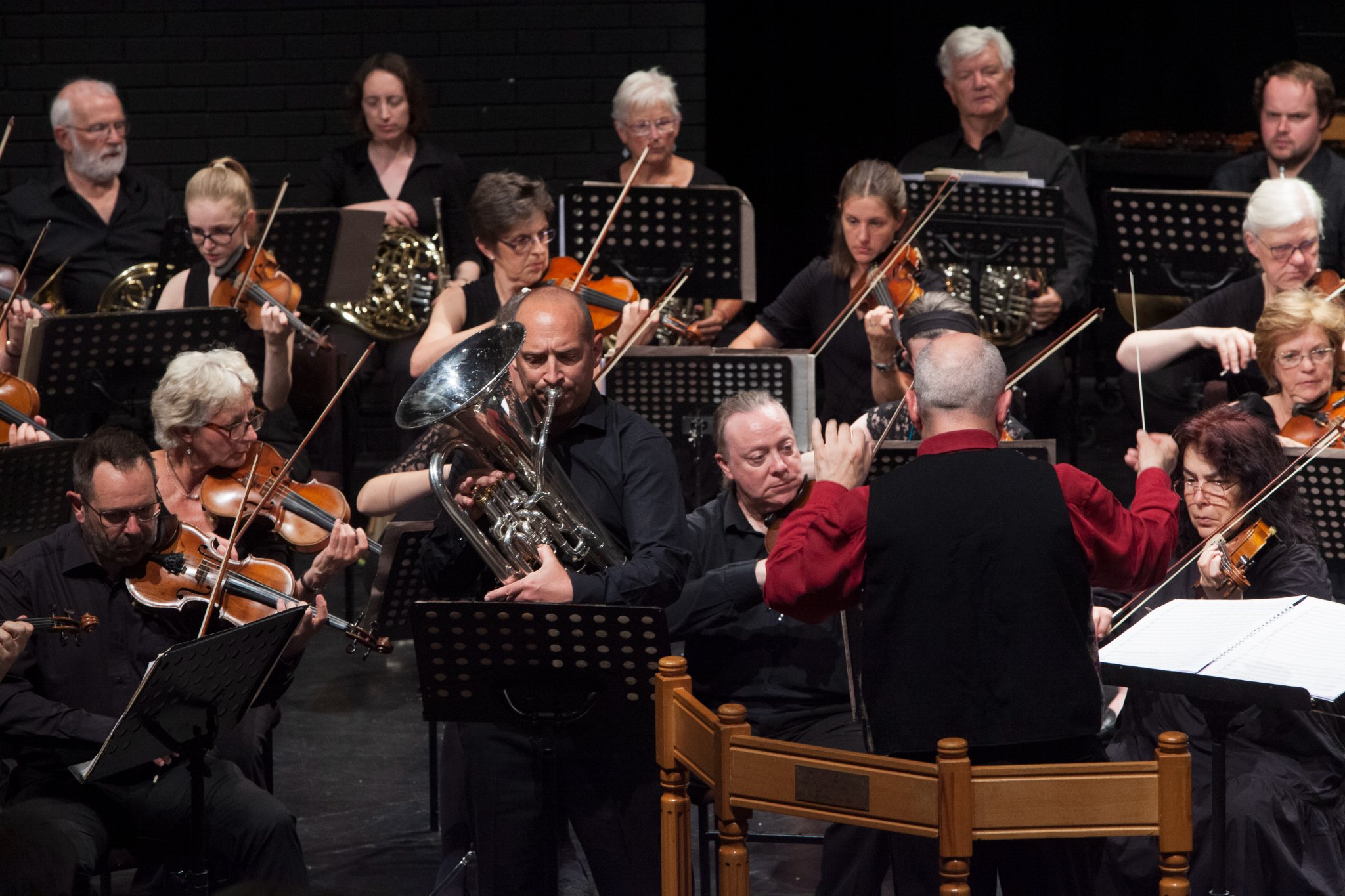Jonathan Dodd, of On The Wight, shares his review of the latest Isle of Wight Symphony Orchestra concert.
On Saturday 9th July, in sweltering heat, the Isle of Wight Symphony Orchestra performed a fantastically varied programme of music from many countries and periods, in a celebration of the end of this season’s concerts.
There were old favourites and there were brand-new and unexpected treats, all performed to the usual high standard of music-making that the IWSO is justifiably famous for. The male musicians were all dressed in black shirts, because of the heat, and our esteemed conductor Mr Jonathan Butcher sported a red shirt a rather colourful waistcoat.
Can-Can in the Underworld
The evening began with the wonderful overture to Orpheus in the Underworld, by Jacques Offenbach. It was first performed in 1858, and became an instant hit, with its undertones of lampooning the government and other composers, and its wonderful tunes and dramatic music.
It started with a fanfare, and a delightful solo for the oboe, then a beautiful solo part for the violin, and it morphs into the famous dance music so enthusiastically taken up by the Can-Can dancers of Paris nightlife. It was a marvellous piece of music to open the concert, and it was played to great effect, especially by the soloists.
Spanish opera, French composer
Then the IWSO embarked on another French operatic work, specifically the Carmen Suite No. 1 by Georges Bizet. He died tragically young, after Carmen was performed and universally disliked, and before it became recognised as a magnificent work. The Suite No. 1 contains 5 musical themes from the opera, and ends with another great showcase tune, the March of the Toreadors, performed vigorously and enthusiastically by the whole orchestra, particularly the bassoons. Throughout, the orchestra performed the familiar delicately-Spanish music wonderfully, bringing out its grace and mystery and sensuousness. It was lovely.
English Euphonium Playing
After a short period of reorganisation, it was time for something completely different. One of the IWSO stalwarts, Will Doyle, took to the podium to perform Gordon Jacob’s Fantasia for Euphonium. I have to admit that I was unfamiliar with the euphonium as a solo instrument, and I was looking forward to listening to this piece.
Originally written for piano accompaniment, this was performed to a specially-written orchestral score for this concert. Will showed huge ability and virtuosity in playing the piece, which covers the whole range of euphonium technique, and it was quite spell-binding, hearing the huge noise that issued from that large horn, as well as the extraordinary delicacy that it is capable of producing.
It was full of dramatic interplay between soloist and orchestra, and sections where Will played solo, expressing the music with passion and dexterity and a huge amount of skill. Well done Will, it was a fantastic experience. Thank you.
A Dance in Austria
The first part of the concert ended with a performance of the Blue Danube by Johann Strauss II. Everyone knows the Blue Danube. I first heard it in a cinema in 1969, watching 2001: A Space Odyssey on a very large screen. The sight of the tiny spacecraft approaching a large space station with the enormous vastness of Space behind it thrilled me to the core, as Strauss’s blue Danube hit my ears, was one of my life’s great moments.
There’s something deep-seated in the way the introduction steps tantalisingly towards the beginning of the dance, and then that moment when the waltz begins, and the way it grows inexorably towards the climax and the majestic ending. It’s thrilling, emotionally-charged, and when it’s played well, as it was on Saturday, it leaves a lasting physical and emotional impression. Bravo.
Busy Busy Oxford Street
After the interval it was the turn of the delightful Oxford Street by Eric Coates to thrill us with its depiction of the grand thoroughfare filled with busy movement. For those of us who remember the BBC in the 1950s, it brought back that time of light music with such a strong feeling of Englishness. It gave me a thrill, and I loved it.
The Underworld, again
The Dance Macabre by Camille Saint-Saens came next, with its eerie harp and clacking xylophone and the violin soaring over the wild rhythms evoked a gruesome scene, with the Devil fiddling while ghosts and demons and skeletons dance wildly on Halloween.
It careened around us with interventions by the brass and percussion sections, and beautiful quiet solos. It was full of momentum, and the orchestra played it magnificently, ending with huge smiles on all their faces.
An English Garden, in Summer
The next piece, the beautiful In A Summer Garden, by Frederick Delius, also took me back to 1968, when I watched a black and white film called Song of Summer, created for the BBC by a young Ken Russell.
That was my introduction to the music of Delius, a most particularly English composer, who created tone poems on and about the English landscape, in a wonderfully impressionistic way, describing the feeling of being in the landscape and allowing the incidental sounds and movements to soak into a musical canvas. I was reminded of how much this music impressed me at the time, and I’m glad that I was able to remember and revisit that feeling. I can’t really use words to describe the effect of this music, because it’s a bit like taking a walk in the countryside. You feel deeply refreshed and invigorated by it, but you can’t really remember any details of it afterwards. It was lovely, and beautifully played.
A Russian in Italy
The final piece was the Capriccio Italien by Pyotr Tchaikovsky, written during and after a visit to Italy in 1879. He was staying near a barracks in Rome, and was in inspired to record his impressions of his visit, including the bugle call. It alternates sombre and formal music with dance tunes of great energy, with a thrilling ending. There was a delightful encore, consisting of a march by Montgomery Ewing called Royal Lady, in tribute to the Queen’s Platinum Jubilee. An excellent way to complete a wonderful evening of terrific music. Thank you one and all.
Next Season
The IWSO returns on Saturday 19th November 2022 at 7:15pm at the Medina Theatre, with a Festive Overture by Shostakovich, a Cello Concerto by Dvorak, and a London Symphony by Vaughan Williams.
It’ll be packed, so get your tickets as soon as you can, or better still go for a season ticket. It’ll be worth it.
Jonathan Dodd, On The Wight
